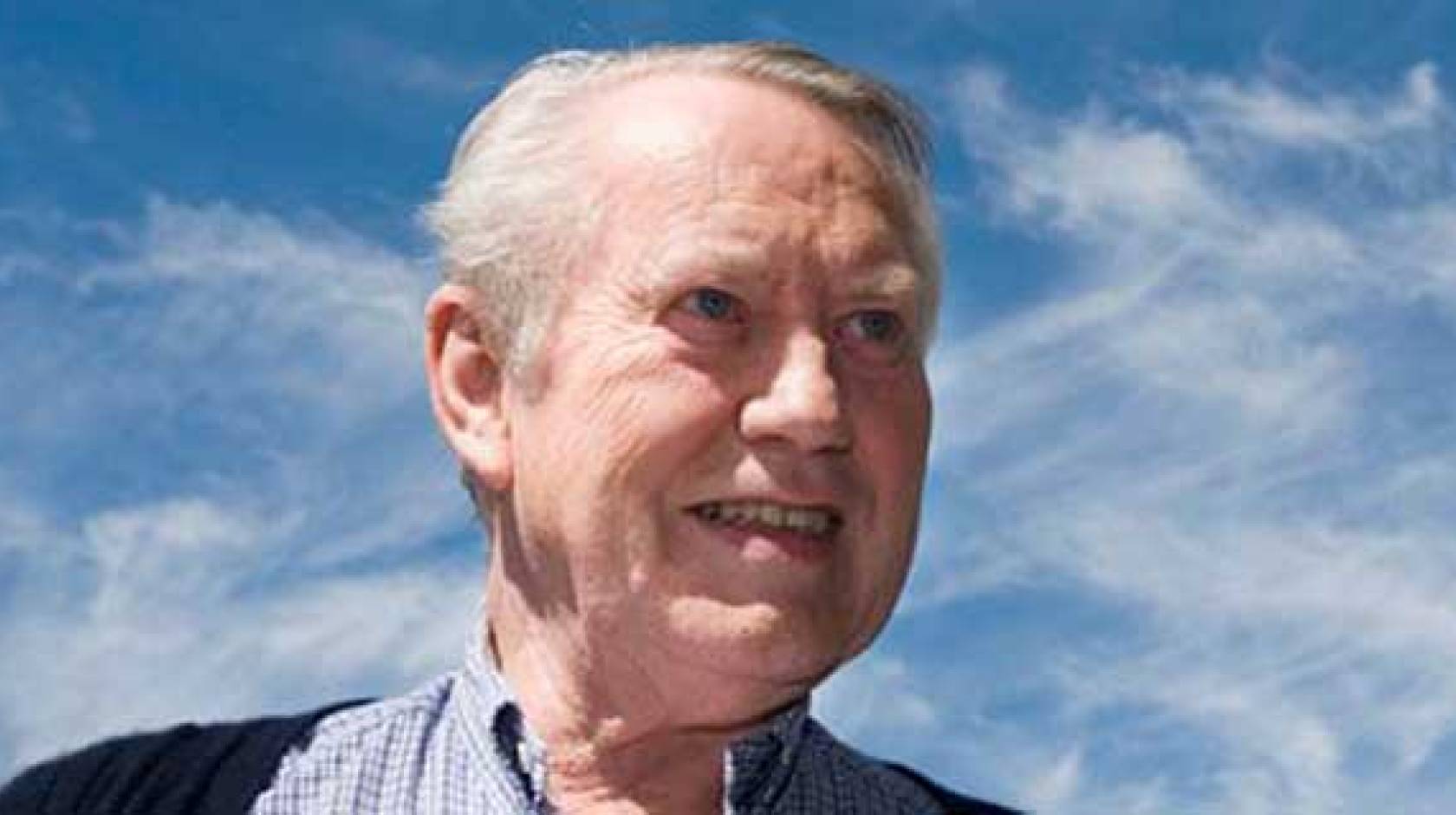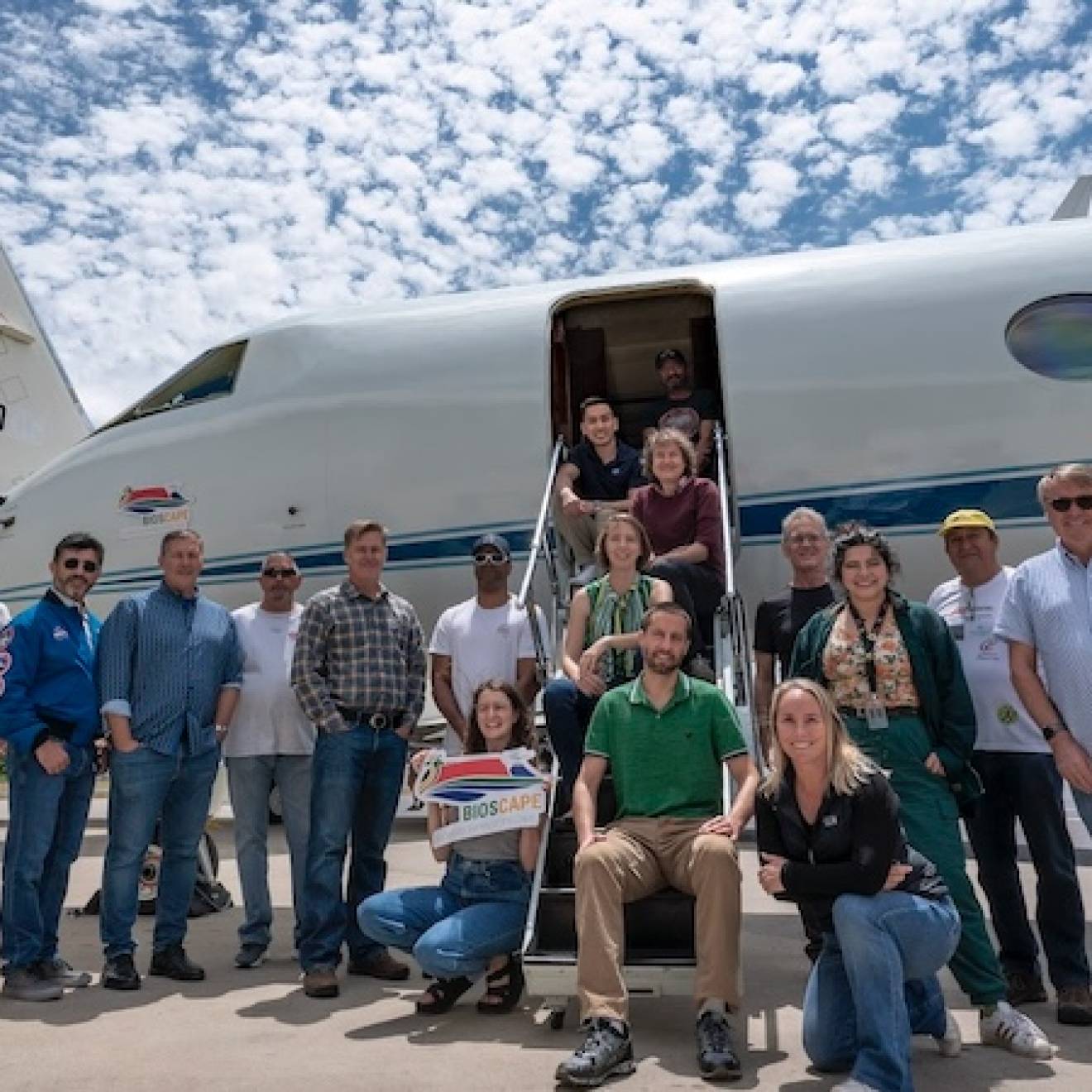Jennifer O'Brien, UC San Francisco

UC San Francisco has received a $100 million gift from visionary philanthropist Charles F. “Chuck” Feeney to support its new Mission Bay hospitals, world-class faculty and students, and research programs focused on the neurosciences and aging.
This donation brings the longtime supporter’s total UCSF giving to more than $394 million, making Feeney the single largest contributor to the University of California system.
“I get my gratification from knowing that my investments in medical research, education, and the delivery of health care at UCSF will provide lifelong benefits to millions of people not only in the Bay Area but also around the world,” said Feeney, who, despite his global presence as a successful entrepreneur and discerning philanthropist, prefers remaining out of the limelight. “I can’t imagine a more effective way to distribute my undeserved wealth.”
Reflecting on Feeney’s contributions, UCSF Chancellor Sam Hawgood, MBBS, said, “As we celebrate UCSF’s 150th anniversary this year, it is only fitting that we acknowledge the unique role Chuck has played in our history. While his impact has been felt most profoundly during this past decade, his generosity will carry on forever at our University, in the San Francisco community, throughout the Bay Area, and globally, as our faculty and students advance knowledge and provide the finest clinical care. We are honored that he has decided to invest again in UCSF.”
Feeney’s gifts to UCSF are most visible at the university’s Mission Bay campus, where he has provided indispensable support to create advanced facilities and foster the environment for the biomedical research and patient care that goes on within them.
Before the latest funding, Feeney’s most recent gift to the campus was to UCSF Global Health Sciences, enabling the October 2014 opening of Mission Hall, which houses global health researchers, scientists and students under the same roof for the first time. Feeney, who coined the term “giving while living,” also generously supported the building of the Smith Cardiovascular Research Building and the Helen Diller Family Cancer Research Building.
“Chuck Feeney has been our partner at Mission Bay for more than 10 years,” added Hawgood. “He immediately embraced the Mission Bay concept, and he has enthusiastically helped us shape a larger vision for the campus and finance its development because he knew that our research and clinical programs could not flourish without state-of-the-art buildings.”
Feeney's gift will support four primary areas:
The Campaign for the UCSF Medical Center at Mission Bay

Funds will support the $600 million philanthropy goal of the $1.5 billion hospitals project. The latest donation builds upon the transformative $125 million matching gift Feeney made to support the hospitals complex and its programs in 2009, the largest gift received toward the campaign.
The opening of the 289-bed hospital complex — which includes UCSF Benioff Children’s Hospital San Francisco, UCSF Betty Irene Moore Women’s Hospital, UCSF Bakar Cancer Hospital and the UCSF Ron Conway Family Gateway Medical Building — was the culmination of more than 10 years of planning and construction. Strategically located adjacent to UCSF’s renowned Mission Bay biomedical research campus, the new medical center places UCSF physicians in close proximity to UCSF researchers and nearby bioscience companies who are working to understand and treat a range of diseases, from cancer to neurological disorders.
“It’s been thrilling to see the reactions of our patients and their families as they encounter the amazing care offered at our new UCSF Mission Bay hospitals,” said Mark Laret, CEO of UCSF Medical Center and UCSF Benioff Children’s Hospitals. “This world-class experience would never have been possible without the support of Chuck Feeney who, as the largest contributor to the project, helped us create the hospitals of our dreams. Every patient cured, every breakthrough discovered at Mission Bay, will be thanks in part to Chuck. His legacy is unparalleled.”
Neuroscience and aging

The gift also supports UCSF’s preeminent neuroscience enterprise, including its Sandler Neurosciences Center and neurology programs at Mission Bay.
The center, a five-story, 237,000-square-foot building that opened in 2012, brings under one roof several of the world’s leading clinical and basic research programs in a collaborative environment. UCSF’s neurology and aging efforts are focused on finding new diagnostics, treatments, and cures for a number of intractable disorders, including Alzheimer’s disease, Parkinson’s disease, multiple sclerosis, stroke, migraine, epilepsy and autism. The programs also seek to integrate neuroscience and clinical disciplines with public health initiatives in order to disseminate and implement novel findings from research centers of excellence, as well as conduct community outreach to raise awareness about the diseases of aging.
“Chuck Feeney has taken a keen interest in the challenges of aging,” said Hawgood. “In turn, he has recognized UCSF’s extraordinary talent in the neurosciences, among both basic researchers and those who translate research into clinical care and public policy. This gift will build on UCSF’s strengths while encouraging strong partnerships at other research institutions around the world where Chuck also has made important investments.”
Student scholarships and housing

Even with its extraordinary academic firepower, UCSF has extremely limited funds to support scholarships for professional students in its schools of dentistry, medicine, nursing and pharmacy. Part of the gift will provide scholarship support, bolstering UCSF’s ability to recruit the best and brightest students, regardless of their financial circumstances.
Recent decreases in state funding led to tuition increases and higher demand for scholarships. This, in turn, increased student debt. Combined with Bay Area housing prices that are among the highest in the nation — from 2011 to 2013, the median rent increased by 24 percent — the prospect of overwhelming debt can deter economically vulnerable students as well as those from middle-class backgrounds from attending UCSF. By minimizing debt upon graduation, the scholarships will help ensure that a UCSF education remains in reach for students from underserved populations, as well as for those students who choose to become health care leaders in underserved communities.
“Scholarships give our students the gift of freedom: to make career choices based on purpose and passion, rather than the price of education; to use time to study, explore science, and volunteer to help others, rather than working to make ends meet; and to succeed because someone who never met them saw enough potential to invest in their dreams,” said Catherine Lucey, M.D., vice dean for education at UCSF’s School of Medicine. “These scholarships catalyze our schools’ ability to find, recruit, educate and nurture the workforce our country needs: talented professionals whose life experiences enable them to provide compassionate care to today’s diverse communities and advance science to improve the health of future communities.”
Faculty recruitment

The donation also will help UCSF recruit the next generation of promising faculty in an increasingly competitive marketplace.
New funding will attract junior faculty — who frequently find it more challenging to secure research funding — and provide initial start-up funds as they launch their research careers and clinical practices. With decreasing federal support for young investigators, this gift will underwrite a new generation of brilliant upcoming faculty.
“While Chuck’s unprecedented generosity has been focused primarily on Mission Bay, he understands the power of the entire UCSF enterprise, from our cutting-edge stem cell research at Parnassus to our innovative cancer programs at Mount Zion,” Hawgood said. “We’re thrilled that Chuck has inspired other philanthropists to join him in creating one of the most vibrant life science communities in the world, where progress will ripple far beyond Mission Bay and the campus for generations to come.”

